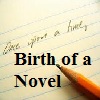 It’s funny. Whenever there is a mass killing and the killer used a gun, all the mainstream media wants to talk about is the gun. Where did the gun come from? Was the gun an ‘assault weapon?’ Why wasn’t the gun kept locked up in some gun shop that shouldn’t be allowed to actually sell their guns?
It’s funny. Whenever there is a mass killing and the killer used a gun, all the mainstream media wants to talk about is the gun. Where did the gun come from? Was the gun an ‘assault weapon?’ Why wasn’t the gun kept locked up in some gun shop that shouldn’t be allowed to actually sell their guns?
No matter how many gun control laws there are, demands are made for more gun control. More classes of people are to be defined as unfit to own guns. Obama even wants to take gun rights away from some Social Security recipients. No more deer hunting for you, grandpa!
But wait a minute. Have you ever heard of a gun going on a shooting spree all by itself? No, there is always a person involved. It’s not the gun that is wicked, it’s the heart of the killer. And if that killer’s heart is wrong and he cannot buy, steal or make a gun, he will kill with other tools. Knives. Bombs. Poison. Chainsaws. Rope. Cars. Once I read of a killer who strangled a woman with her own bikini. Use a bikini, go to prison?
One thing has changed radically in the world during the course of my lifetime. Not the availability of guns, which is restricted in more places and for more people. But in my childhood in the early 1960s, the attitude on matters of right and wrong was far different.
People believed that right and wrong were distinct and ought to be know to everyone. People still believed that the Nuremberg Trials were right because the Nazi officials on trial knew in their hearts that killing Jews, Gypsies and disabled people was a moral wrong, no matter what the Nazi government said about it. And that people had a positive duty to do the morally right thing, even if the government had given the order.
It seemed that when I was a little girl, almost everyone who had children made a point to send their children to Sunday school or other religious education regularly. At the Presbyterian church I remember best, there was a religious education hour between the two church services. There were Sunday school classes for adults as well as children. Sunday school went on 52 weeks a year. Attendance was recorded, and if we went for 52 Sundays, we got a year pin. There were additional pins for additional years of perfect attendance. My family didn’t go every week, so it took me about two years to get my one-year pin.
Sunday school was serious. We memorized a Bible verse every Sunday. We were taught how to find a specific verse in the Bible. Sometimes the first child to find the requested verse got to read it out loud.
We were also asked to invite other children to our Sunday school. Most parents who would never take their kids to a Sunday school still permitted their children to attend a Sunday school with their friends.
Though there was an ill wind blowing and most of those kids, as teens, would learn to reject notions of right and wrong, there was still at the time of my childhood a consensus: some things are right, some things are wrong, and it is possible to tell the difference between the two. And even the irreligious people mostly approved of people following the teachings of the Ten Commandments and the Golden Rule.
Flash forward to today: in the Presbyterian church body that I went to as a child, it is no longer required to believe that Jesus Christ was the Son of God or the Savior of mankind. Abortion rights and marriage equality are the important beliefs at denomination headquarters these days.
Kids today are highly likely to come from broken homes of various types rather than the home of their married biological parents. And loud atheists are demanding that kids learn that religions are all bad and that the charities performed by religious bodies don’t exist, somehow.
You cannot say something is right or wrong these days without being loudly contradicted by someone who proposes a whole different scheme of right and wrong. Everyone to their own taste, even when it comes to moral views.
And so people who might be inclined to kill have a much easier time of it, when they decide to justify their murderous choices. After all, if respectable representatives of the more well-to-do political party can say it is OK to kill the unborn, the terminally ill, the people with brain damage such as Terri Schiavo and that stroke victim who begged for food and water, only to have a court rule she was not competent to make that request; well, how is some sociopath or person with mental illness to know it’s a big deal when the decide to kill the people they don’t consider really human?
The gun control advocates are just distracting us. The real problem is that our society is no longer together on following a set of rules about right and wrong and passing it on. And that just ensures that there are going to be more wicked hearts out there, set on doing wrong to others. The solution is not to punish guns, it is to educate people. And punish the ones who break the laws with imprisonment, even if prison cells cost money.



